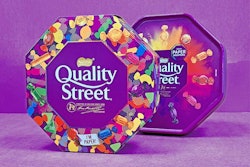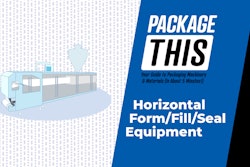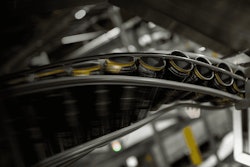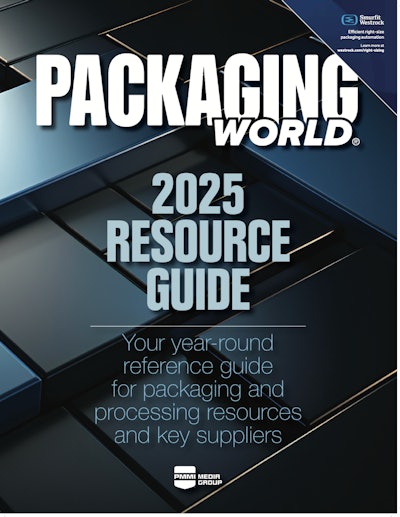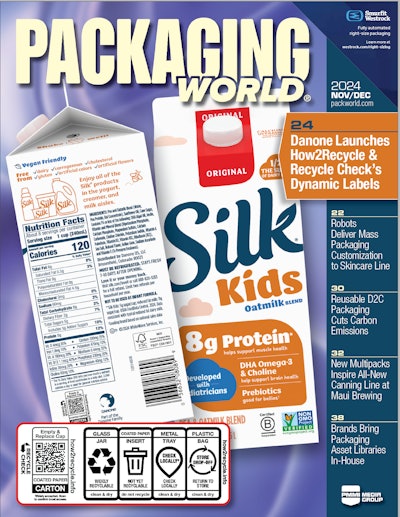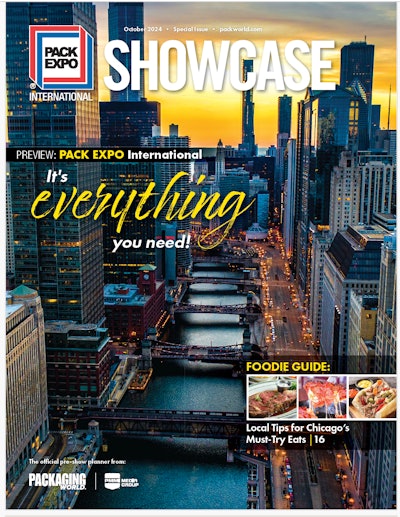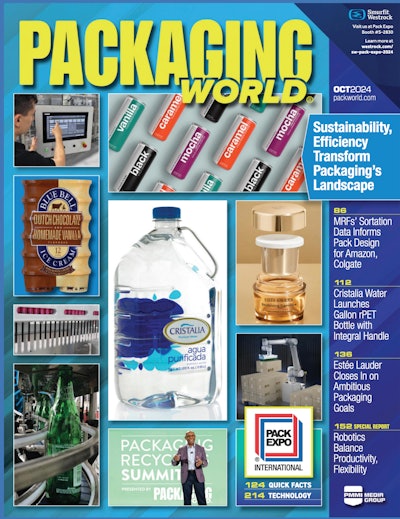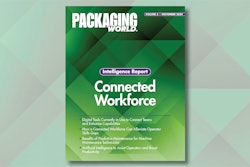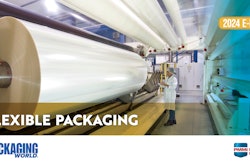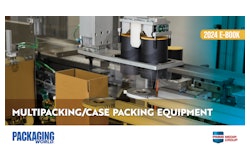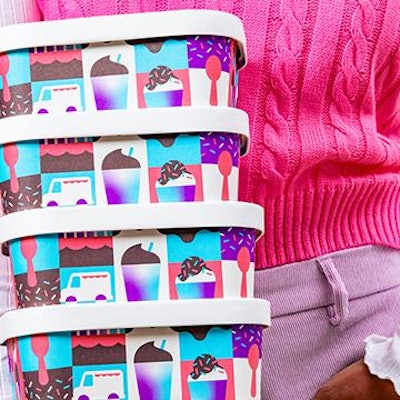
These bio-alternative packaging innovations represent an industry-wide shift towards materials that are naturally sourced, biodegradable, or compostable, meeting consumer expectations for environmentally responsible packaging.
Learn more about ThePackHub's Innovation Zone here.
 Baskin-Robbins expects to eliminate about 605 metric tons of fossil-fuel-derived plastic with its switch to sustainable solutions in Australia.Image provided by ThePackHub
Baskin-Robbins expects to eliminate about 605 metric tons of fossil-fuel-derived plastic with its switch to sustainable solutions in Australia.Image provided by ThePackHub
BioPak has collaborated with Baskin-Robbins Australia to transition the ice cream brand towards sustainable packaging. This move involves replacing plastic ice cream cups, tumblers, and the signature pink plastic spoons with compostable options, such as FSC-certified birchwood spoons and paper-based products. The transition aims to significantly reduce plastic waste, annually eliminating approximately 605 metric tons of fossil-fuel-derived plastic. BioPak’s compostable solutions are made from renewable plant-based materials, offering a sustainable alternative to conventional single-use plastics. In addition to the packaging changes, the partnership aligns with broader environmental initiatives, including tree planting and meal donations through BioPak’s ‘Waste to Value’ program. Baskin-Robbins’ switch reflects a wider trend within the food service industry towards sustainable alternatives amid growing consumer demand and increasing regulatory pressures. Such initiatives are becoming more prominent, especially as Australia’s states have been rolling out bans on single-use plastics.
 Soy Silvestre's new compostable wheatgrass shot sachets can securely contain the product through freezing and defrosting.Image provided by ThePackHub
Soy Silvestre's new compostable wheatgrass shot sachets can securely contain the product through freezing and defrosting.Image provided by ThePackHub
Chilean health food producer Soy Silvestre, known for its natural supplements, has shifted from plastic pots to compostable flexible packaging for its wheatgrass shots. These new sachets, made by Green Heart Solutions, are composed of a high-barrier cellulose film, NatureFlex, sourced from Futamura, and laminated with a biofilm. This structure ensures the sachets can securely contain the liquid product throughout its lifecycle, from freezing to defrosting and consumption, while maintaining a four-month shelf life. Liquid products are challenging to package, especially in compostable formats, but this solution allows for automated packaging and ensures the sachets meet home and industrial composting certifications from BPI, Dincertco, and TUV. Additionally, the packaging complies with Chile’s single-use plastics law, PUSU No. 21368. This innovation received second place in the food packaging category at the Circlepack – Viva Packaging 2024 fair, highlighting its environmental benefits and technical complexity. The NatureFlex film is derived from renewable wood pulp, further contributing to the circular life cycle of the packaging. By adopting this packaging, Soy Silvestre aligns with its sustainable business model, reducing environmental impact while maintaining the integrity of its health-focused products.
 Whatrr's new biodegradable water bottles use bamboo and sugarcane pulp to make up the outer shell.Image provided by ThePackHub
Whatrr's new biodegradable water bottles use bamboo and sugarcane pulp to make up the outer shell.Image provided by ThePackHub
Whatrr, a California-based brand, has launched a new biodegradable water bottle that is claimed to break down by 85.5% in 3.5 years under conditions that simulate landfill environments. The biodegradable performance is backed by ASTM D5511 testing. This bottle is primarily composed of bamboo and sugarcane pulp for the outer shell, coupled with an internal biodegradable barrier, and is free from BPA and toxins. It can also be reused, making it a potentially more sustainable alternative to conventional plastic and other materials like aluminum, glass, or paper cartons. In collaboration with Erewhon, an organic grocery store chain based in Los Angeles, the brand has made its products available both in-store and online, with aspirations to expand its retail reach soon. The initiative positions Whatrr as a brand with a focus on reducing plastic waste in a rapidly growing bottled water market.
Learn more about ThePackHub's Innovation Zone here.

.OvcZHe3G0k.jpg?crop=focalpoint&fit=crop&fp-x=0.5&fp-y=0.5&h=67&w=100&auto=format%2Ccompress&q=70)



